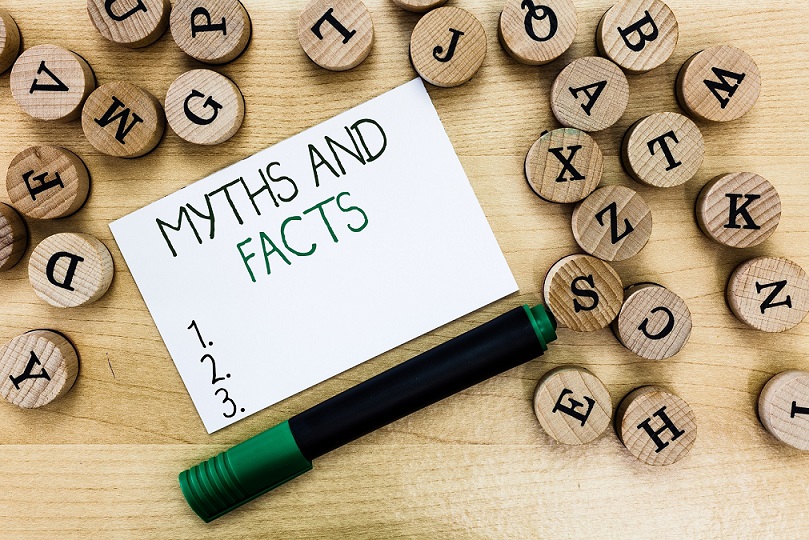Common Property Tax Appeal Myths
Due to some common myths and misperceptions about property taxes and how the appeal process works, many people are afraid to appeal their property taxes. They spend years paying high property taxes when they should have appealed a long time ago. These are some common misconceptions that prevent people from saving:
Myth #1: A homeowner can reduce their property taxes after the property tax bill comes out.
It is impossible to reduce property taxes for the tax bill once it has been issued since the County is usually done processing appeals for that tax year.
Myth #2: When filing an appeal, a homeowner is appealing their property taxes.
Yes and no. When filing an appeal, the homeowner is appealing their property’s total tax assessment. Property’s total assessment consists of two parts, the land assessment, and the building assessment. In 99% of cases, only the building assessment is appealed.
Myth #3: Appealing property taxes can result in higher property taxes.
No. When filing an appeal to lower your property’s tax assessment, the final assessment can never be higher than the initial assessment. If an appeal is denied, the property’s assessment will not change.
Myth #4: Homeowners can appeal property taxes whenever they want.
No. In most counties, a homeowner can file a property tax appeal only when their Township is open for appeal with the County’s Assessor or Board of Review. Usually, the County’s Assessor and the Board of Review will assign a 30 or 40-day appeal window to each township when homeowners in these townships can submit their appeals.
Myth #5″ A lawyer is necessary to appeal property taxes.
No. Most counties allow property tax appeals without professional representation.
Myth #6: Appealing property taxes is the only way to reduce property taxes.
No. In many jurisdictions, disabled, elderly, and low-income residents, among others, may receive property tax relief in the form of property tax exemptions. These exemptions can considerably reduce or even eliminate one’s property taxes.
Myth #7: Curb appeal, amenities, and appliances may increase property taxes.
The Assessor does not care about curb appeal, appliances, and how the property is finished on the inside. The only things that matter are the structural characteristics of a property, such as size, age, construction type, basement, attic, and property classification.
Myth #8: Refinancing a property will increase property taxes.
No. Refinancing has nothing to do with property taxes. Refinancing a home will reduce monthly mortgage payments on the property, but the property’s valuation will not change as a result of it.
Myth #9: An erroneously assessed building area, number of bathrooms, or number of fireplaces will be revealed in an appeal and increase the property’s taxes.
No. During an appeal, the assessor strictly goes by the information in their system to determine the merits of the appeal. The assessor will not send a field agent to a property to verify its characteristics unless specifically requested by the homeowner.
Myth #10: Accidentally submitting a value-based appeal for a property using a purchase price that exceeds the property’s market value will increase property taxes.
No. Even if submitted information warrants a property tax increase as part of an appeal, the County Assessor and the Board of Review will not increase the property’s total assessment. The only thing they can do is to deny the appeal.
Myth #11: Property tax appeals can be filed to refund overpayments in prior years.
Property taxes can only be appealed for the current year. They cannot be appealed retroactively for prior years, the appeal is based on vacancy, uninhabitable status, or the property having been demolished.
Myth #12: A homeowner can appeal their property taxes immediately after purchase.
No. A homeowner cannot appeal their property taxes in the same year the property was purchased. The owner must reside on the property as of January 1st of the year in which they plan to file an appeal.
Myth #13: The homeowner can appeal the market valuation of their property based on a purchase price from a short sale or foreclosure transaction.
No. Foreclosure or short sale transactions do not represent normal sales and can not be used as the basis for most appeals. Only purchase price from an arms-length transaction can be used to appeal the market valuation of a property.
Myth #14: After a property is purchased, its appraisal can be used to appeal the property’s valuation.
No. The purchase price will always supersede the property’s appraised value for an appeal since it is the only true indication of market value and not a representation of opinion like an appraisal.
Myth #15: A property’s taxes will go up next year if the property’s purchase price is higher than the property’s market value assigned to it by the County’s Assessor.
Maybe. If a property is purchased at the end of the re-assessment cycle, the property’s market value may increase to match its purchase price during the next re-assessment cycle. Nevertheless, if the property is purchased after the new assessment was set for the re-assessment cycle, the property’s market value will not increase until the end of the current cycle.
Most homeowners feel that appealing property taxes is beyond their level of understanding. They are afraid to do anything that might cause their property taxes to rise, not realizing that doing nothing might be what causes their taxes to rise in the first place. If a homeowner has questions regarding their property taxes, they can always contact their local County Assessor’s office or a property tax professional in their area to resolve their questions and gain the understanding they need to lower them in the future.
